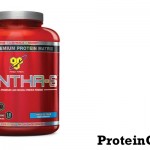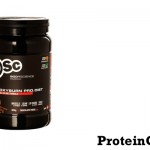If you’re looking to boost your protein intake while following a vegetarian diet here in Australia, there are plenty of delicious and nutritious options available.
So, here are some of the best high-protein vegetarian foods you can enjoy and add to or into your daily meals:
Legumes and Lentils
Chickpeas, lentils, black beans, and kidney beans are excellent sources of protein. They can all be used in soups, stews, salads, and even as a great base for your veggie burger patties.
Legumes are a vital component of vegetarian diets, offering a rich source of protein, fibre, iron, and zinc. Common legumes include beans (like kidney, black, and cannellini beans), lentils, chickpeas, peas, and soybeans. They are not only nutritious but also versatile, fitting into a variety of dishes from soups and stews to salads and spreads. Including legumes in your diet can help ensure you get essential nutrients that support overall health and well-being.
Lentils are a staple in vegetarian diets due to their high protein and fibre content, making them an excellent meat substitute. They come in various types, such as brown, green, red, and specialty lentils like beluga and puy, each with unique flavours and textures. Additionally, they are rich in essential nutrients like iron, folate, and magnesium, contributing to overall health and well-being.
Tofu and Tempeh
These soy-based products are versatile and can be used in a variety of dishes, from stir-fries to salads. They are rich in protein and can easily absorb the flavours of the ingredients they are cooked with.
Tofu, also known as bean curd, is a versatile and nutritious staple in vegetarian diets. Made from soybeans, it is a great source of plant-based protein, containing about 17 grams of protein per 100 grams. Tofu is also low in fat and can be used in a variety of dishes. Its ability to absorb flavours makes it a popular meat substitute, helping vegetarians and vegans create delicious and satisfying meals. Additionally, tofu is free from animal products, making it suitable for both vegetarians and vegans as well.
Tempeh is a popular protein source in vegetarian and vegan diets. Originating from Indonesia, tempeh is made by fermenting cooked soybeans with a live culture, resulting in a firm, cake-like product. It’s rich in protein, fibre, and essential nutrients like calcium, iron, and Vitamin B12. Tempeh has a nutty, earthy flavour and a slightly chewy texture, making it a versatile ingredient in various dishes. It can be crumbled into salads, added to stews, or marinated and grilled as a meat substitute. Its fermentation process also introduces beneficial probiotics, which can help to support digestive health.
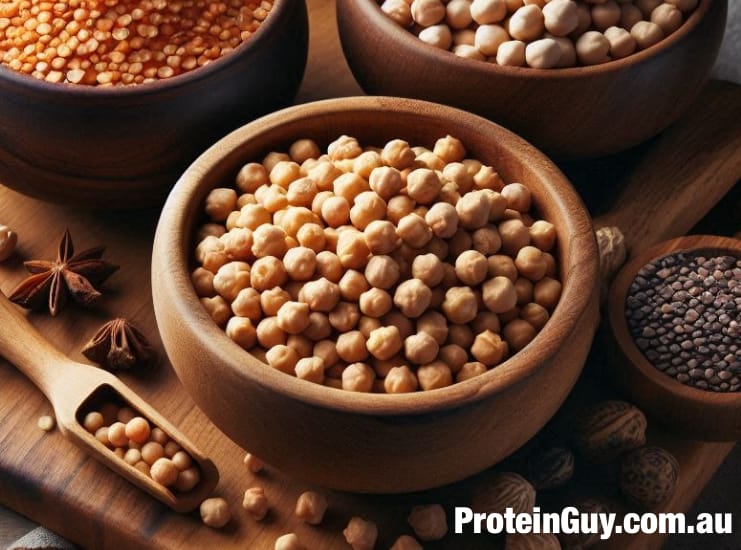
Nuts and Seeds
Almonds, peanuts, sunflower seeds, and chia seeds are great for snacking or adding to meals. They provide a good amount of protein along with providing healthy fats.
Nuts are a crucial part of a balanced vegetarian diet, providing essential nutrients that can sometimes be harder to obtain from plant-based foods alone. They are rich in protein, healthy fats, vitamins, and minerals such as iron, zinc, and calcium. For example, almonds are particularly high in calcium, while cashews offer a good amount of iron. Including a variety of nuts, such as walnuts, almonds, and cashews, can help vegetarians meet their nutritional needs and enjoy a diverse, satisfying diet.
Seeds are a fantastic addition to vegetarian diets as well, offering a wealth of nutrients and health benefits. They are rich in healthy fats, protein, fibre, vitamins, and minerals. Common seeds used in vegetarian diets include chia seeds, flaxseeds, sunflower seeds, pumpkin seeds (pepitas), and hemp seeds. These seeds can be sprinkled on salads, blended into smoothies, or used in baking to boost nutritional content. They provide essential fatty acids, such as Omega-3s, which are important for heart health, and they also support digestive health due to their high fibre content.
Dairy Products
Cheese, yogurt, and milk are traditional sources of protein for vegetarians. You could opt for Greek yogurt or cottage cheese for an extra protein boost if needed.
In vegetarian diets, dairy products can play a significant role, depending on the type of vegetarianism. Lacto-vegetarians include dairy products like milk, cheese, yogurt, and butter in their diets while excluding meat, fish, poultry, and eggs. Lacto-ovo vegetarians also consume dairy products and eggs but avoid meat, fish, and poultry. These dairy products provide essential nutrients such as calcium, protein, and Vitamin D, which are important for maintaining bone health and overall nutrition. However, some vegetarians choose to avoid dairy for ethical, health, or environmental reasons and may opt for plant-based alternatives like almond milk, soy cheese, and coconut yogurt.
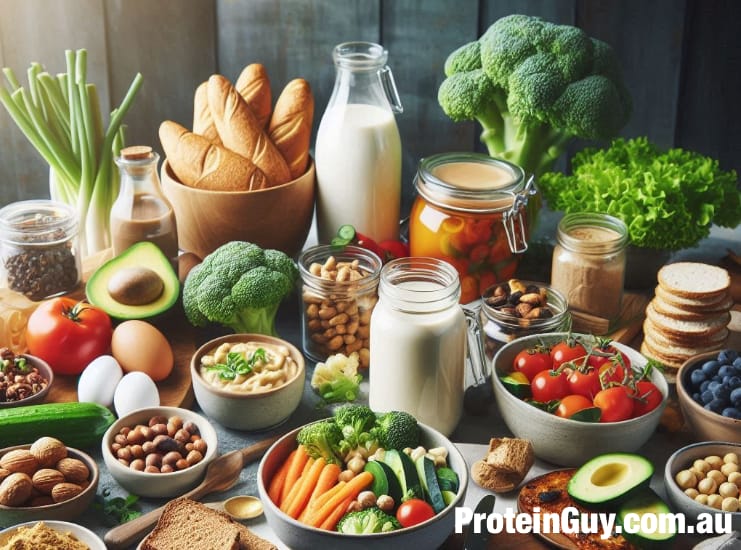
Eggs
Eggs are a complete protein source and can be prepared in numerous ways, making them a staple in many vegetarian diets.
In vegetarian diets, eggs are often included as a source of high-quality protein and essential nutrients like vitamin B12, iron, and Omega-3 fatty acids. There are different types of vegetarians: Ovo-vegetarians eat eggs but avoid dairy, meat, and fish; Lacto-ovo vegetarians include both eggs and dairy but avoid meat and fish; and Lacto-vegetarians avoid eggs, meat, and fish but include dairy.
Eggs are considered vegetarian because they do not contain animal flesh. However, some vegetarians avoid them due to ethical, religious, or health reasons. Overall, eggs can be a valuable part of a vegetarian diet, helping to ensure adequate intake of important nutrients.
Quinoa
This grain is not only high in protein but also contains all nine essential amino acids, making it a complete protein source. It can be used in salads, as a side dish, or even in breakfast bowls.
Quinoa is a fantastic addition to vegetarian diets due to its impressive nutritional profile. It’s a complete protein, meaning it contains all nine essential amino acids, which is rare for plant-based foods. This makes it an excellent protein source for vegetarians who might otherwise struggle to get enough protein. Additionally, quinoa is high in fibre, iron, magnesium, and other essential minerals. It’s also gluten-free, making it suitable for those with gluten intolerance.
Edamame and Peas
These green vegetables are surprisingly high in protein and can be added to salads, stir-fries, or enjoyed as a snack.
Edamame are young, green soybeans that are harvested before they fully ripen. They are a popular choice in vegetarian and vegan diets due to their high protein content and nutritional benefits. Edamame provides all nine essential amino acids, making it a complete protein source, similar to meat and dairy. They are also rich in fibre, vitamins (such as folate and vitamin K), and minerals (like iron and calcium), which support overall health. Edamame can be enjoyed in various ways, such as boiled and sprinkled with sea salt, added to salads, soups, or rice dishes, making them a versatile and nutritious addition to plant-based diets.
Peas play a significant role in vegetarian diets due to their high nutritional value. They are an excellent source of plant-based protein, which can also help with muscle repair and boosting immune function. Additionally, peas are rich in fibre, which aids digestion and helps maintain stable blood sugar levels. They also provide important vitamins and minerals, making them a versatile and nutritious addition to meals. Whether used in soups, salads, or as a side dish, peas can contribute to a balanced and healthy vegetarian diet.
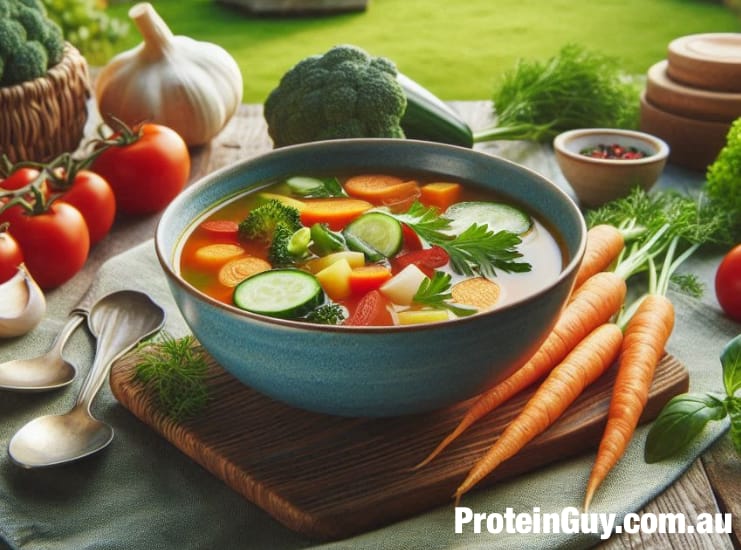
Seitan
Made from wheat gluten, seitan is a high-protein meat substitute that can be used in a variety of dishes. It’s especially popular in Asian cuisine.
Seitan, also known as wheat gluten, is a popular plant-based protein used in vegetarian and vegan diets. Made from the protein portion of wheat, seitan has a chewy, meat-like texture, making it a versatile substitute for meat in various dishes. It’s rich in protein, low in fat, and can easily absorb flavours from herbs, spices, and marinades. Seitan is often used in stir-fries, sandwiches, and even as a base for vegan sausages and burgers. It’s a great option for those looking to increase their protein intake while avoiding animal products.
High protein vegetarian options for you
There you have it, 8 of the best high protein vegetarian options, incorporating these above foods into your diet can help you meet your protein needs while enjoying a variety of tasty and nutritious meals!
